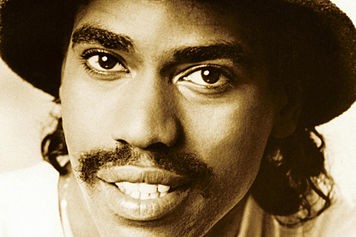
Kurtis Walker
*1959
of Rock and Hip-Hop/Rap
A.k.a. Kurtis Blow
Kurtis Blow was born Kurtis Walker in Harlem in 1959 The first rapper to sign with a major record label, was instrumental in bringing rap from the underground to the masses. He began to immerse himself in the newborn hip-hop culture in the early '70s; in 1976, he enrolled at City College of New York, where he became program director at the college's radio station. During his college years, Blow fell in with a group of friends, acquaintances and collaborators that would become the core of early-'80s hip-hop. Blow worked with, among others, Grandmaster Flash, Russell Simmons and Mele Mel. After college, Blow embarked on his music career with Simmons as his manager and Simmons's younger brother Joey (who was once called 'son of Kurtis Blow' and was later known as Run) working the turntables. In 1979, Blow recorded "Christmas Rapping," a novelty single co-written by Billboard columnist Rocky Ford. The song was a hit, landing Blow a contract with Mercury Records. Later that year, Blow released his landmark "The Breaks," included on Blow's self-titled debut. The record was a major success both within the hip-hop community and outside, with certified gold sales. It earned Blow a place in the pantheon of influential early rappers. Blow's early success was followed by a dry period in the early '80s, when his Deuce and Tough albums failed to dent the charts. However, things picked up in 1984 with the release of the Ego Trip album, which featured the single "Basketball." The next year, Blow made his film debut in Krush Groove. Blow's production work for artists such as Sweet G was also getting notice: He was named Producer of the Year in New York for three consecutive years (1983-85). However, Blow's career took a significant downturn thereafter. His 1986 album, 'Kingdom Blow', was a commercial and critical flop, as was 1988's misnamed 'Back by Popular Demand'. As his recording career wound down, Blow expanded his production work and became one of the first rappers to infiltrate mainstream television, appearing in commercials for Sprite in 1986 and writing rap segments for the soap opera "One Life to Live" in 1991-92.
